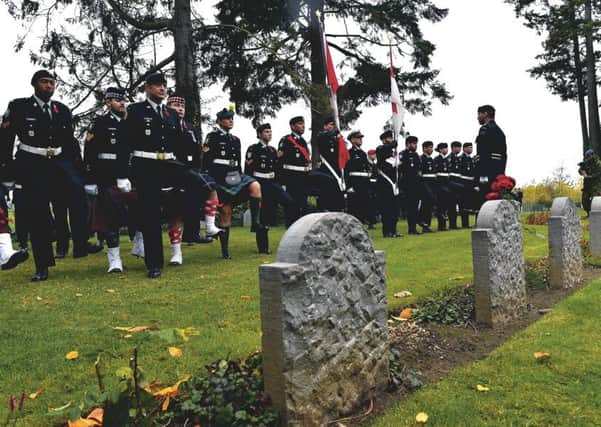Leader: Take care we never have to relearn Great War lesson


Just as, in the early 1990s, academic Francis Fukuyama suggested we had reached the “End of History” because of the triumph of liberal democracy over communism, there were those in the early 20th century who thought humanity was well on the way to the abolition of war. Hopes were high that negotiation, not armies, would settle disputes, as the eminent First World War historian Margaret MacMillan has documented.
A 1909 book called The Great Illusion, by Norman Angell, became a bestseller in the UK and the US, arguing that “the warlike nations do not inherit the earth; they represent the decaying human element” as physical force was having a “diminishing role in all spheres of human activity”; a major war was not impossible, he wrote, but it would be ruinously expensive and so it was in no country’s interest to start one.
Advertisement
Hide AdNine years later, 10 million combatants and millions of civilians were dead, with starvation and disease proving to be just as deadly as the poison gas, barbed wire and machine-guns of the trenches. The map of Europe and much of the world was redrawn.
On the 100th anniversary of the First World War, we should all try to comprehend the staggering scale of the tragedy, but it is also important to remember that each death meant an individual lost the chance to live life to the fullest, to achieve things great or small, to be loved and to return it, to have a family, and to grow old.
Robert Graves’ 1916 poem, Last Day Of Leave, tells of a happy day in the hills – “our braggadocio under threat of war” – with four friends: ‘Do you remember the lily lake?
We were all there, all five of us in love,
Not one yet killed, widowed or broken-hearted.’
The world today is bound together by instantaneous communication and a globalised economy. Doubtless many will regard a major global conflict as an implausible, unlikely scenario for much the same reasons as those outlined by Angell. But in Europe and America far-right nationalism is rising, the wars in Yemen and Syria have dragged in major regional powers, in the seas around China, territorial disputes could easily flare up into open conflict, and Russian troops still occupy parts of Ukraine where the fighting continues.
As we remember the dead of the First World War, we should take care that we are not being lulled into a false sense of security by the lily lake of modern life in Britain.